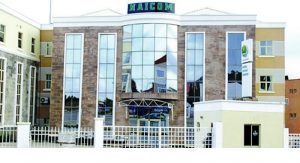By Zainab Iwayemi
- As recapitalisation deadline draws near
It is less than 60 days left to the big day when Nigerian insurance and reinsurance companies are expected to present at least 50 per cent and 60 per cent of their respective capital bases as prerequisites from the Nigerian Insurance Commission (NAICOM). Consequently, it is anticipated that about 90 per cent should have met the required minimum amount for the first phase, with earnest preparation to meet the 100 per cent by September 2021.
However, a prelude to this development was the request from the companies to the industry regulator for the December deadline to be waived, with justification for the request hinged on the economic upheaval which has clothed the year 2020, leading and thus, forcing insurance companies to dig deep into their pocket to settle affected parties and companies.
Following the request for waiver of the first phase of the recapitalisation scheduled for 31st December 2020, several industry stakeholders have raised questions requiring answers with regards to what would happen to insurance companies that are unable to meet up. Or whether this would end up being the crossroads for some insurance companies, amongst other things? These questions have continued to ring a bell in the minds of stakeholders especially as the waiver marks the third year since the move was orchestrated in 2018.
NAICOM had initially scheduled the recapitalization deadline for 1st January 2019 but had to adjourn the date to June 30th 2020 due to a reason advanced that the feasibility of meeting up became slim due to coronavirus spread, which necessitated months of restriction on businesses. Once more, a new deadline was fixed, this time, in a segmented date format: 31st December 2020 and 30th September 2021 – to enable insurance companies meet up.
In a note to Business A.M. on this trending issue, Ekerete Olawoye Gam-Ikon, a management-strategy insurance consultant and practitioner, opined that insurance companies, rather than worry about the December deadline, should brazen up for the task ahead so as to prepare a solid floor for September next year.
In his words, “Honestly, there should be no talk about fate as if those companies that would be unable to meet the deadline are dead, de-licensed or even stopped from conducting business. They will just need to continue to press on and achieve the goal; and possibly impress on NAICOM the need to announce those that subsequently meet the requirement without waiting for the final deadline of September 30, 2021.
“The tier-based Minimum Solvency Capital structure specifies the capital requirement for each of the three classified levels: Tier 1, Tier 2 and Tier 3 – which include life insurance, non-life insurance and composite insurance, respectively. Unfortunately, the scheme didn’t see the light of the day as NAICOM was charged to court and made to terminate the scheme. But it seemed, rather than keeping a low profile, NAICOM was more interested in raising the bar and giving a new dimension to insurance in Nigeria, hence, the introduction of recapitalization,” he noted.
Expressing his thought on the strength of Nigeria’s insurance sector, Ekerete said he does not think there should be a waiver by NAICOM, but only after announcing the first batch of insurance and reinsurance companies that have met the new capital base.
He added that such waivers may come in terms of a campaign to let the world know that those companies are still able to do business and announcing those that meet the deadline without waiting till September 2021, and accepting to assist settlement of their long outstanding claims to policyholders.
“I foresee a situation where the recapitalisation process may be going the way of the Tier-Based Minimum Capital that NAICOM had previously proposed and was rejected by operators through the court. In the end, everything will be about the customers but no one seems ready to take advantage of the opportunities COVID-19 pandemic and the #EndSARS protests have brought us,” the insurance expert added.
“In my effort at changing the narratives of insurance, I have met people that are most unlikely to switch their insurance providers. They still look at the relationship they have had and rely on it rather than the service they get. Perception is the key to relationships. On the positive side, many more people have been calling to know how they can insure their assets. Over 98 per cent of Nigerians do not have genuine insurance cover and that is where the real work is,” he added.
Fundamentally, as pointed out by the expert on how the plan shapes the economy, the African tradition is known to value the relationship with its immediate family as well as unrelated family. This extends to community members, business associate and even foreigners.









